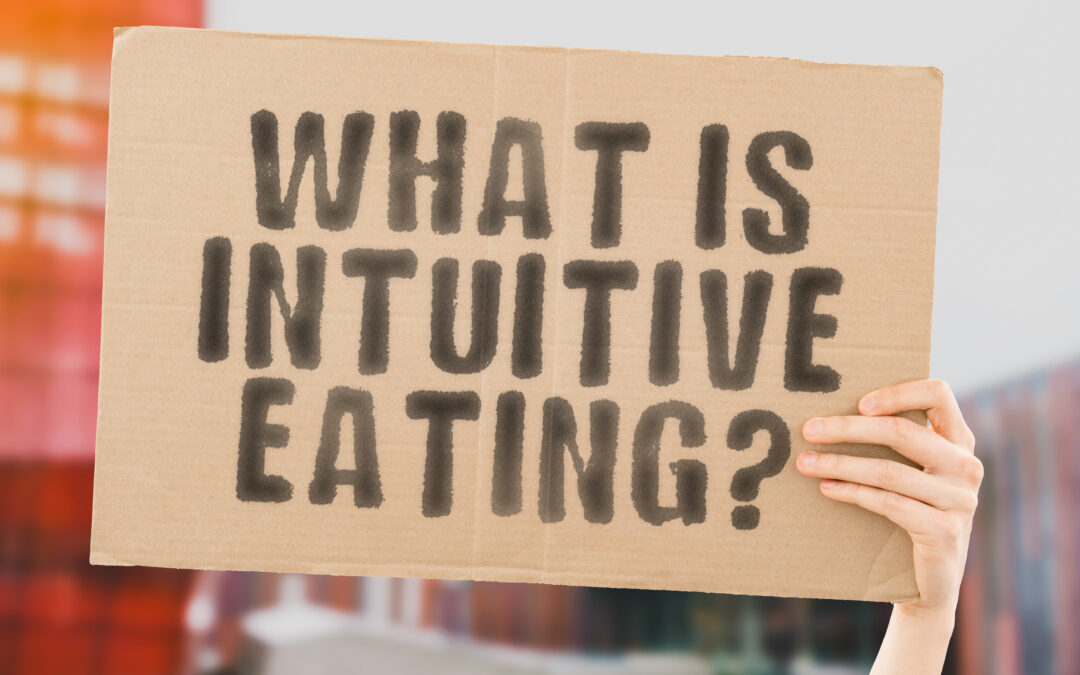If you’ve spent any time on social media over the last few months, you’ve probably stumbled across creators like Hannah Lea (@myarfidlife) or Kevin Jarvis (@kevindoesarfid). What do they have in common? They share their journey with ARFID or Avoidant/Restrictive Food Intake Disorder. Unlike other eating disorders, ARFID is not typically about body image, but about the fear and anxiety surrounding food itself. As a team of eating disorder dietitians, we’re here to help you understand what ARFID is and whether it might be affecting you.

We’ll Discuss
What Is ARFID?
ARFID is an eating disorder characterized by:
- Avoidance or restriction of food intake: This isn’t about dieting or losing weight. Instead, it often stems from a fear of negative consequences from eating, such as choking, vomiting, or having an allergic reaction.
- Nutritional deficiency: The restrictive eating can lead to significant nutritional deficiencies, weight loss, or growth issues.
- Impact on daily life: ARFID can cause significant distress or impairments in social, academic, or occupational functioning.
Signs and Symptoms of ARFID
Wondering if ARFID might be part of your experience? Here are some questions to consider:
- Fear of Negative Outcomes:
- Do you avoid eating because you’re afraid of choking, vomiting, or an allergic reaction?
- Is this fear strong enough to cause you to skip meals or avoid social eating situations?
- Nutritional Gaps:
- Are you experiencing unexplained weight loss, fatigue, or other signs of malnutrition?
- Have you been told by a doctor that you’re not getting enough nutrients, even if you’re eating regularly?
- Consistent Avoidance of Certain Foods:
- Do you have a list of “safe” foods and avoid trying anything new?
- Are there specific textures, colors, or smells that make you anxious or nauseous?
- Social and Emotional Impact:
- Do you avoid social situations involving food, like dinners with friends or family gatherings?
- Do you feel anxious or stressed when thinking about meals or eating?
If you answered “yes” to several of these questions, it’s worth exploring your relationship with food alongside a trusted dietitian with eating disorder expertise.

How ARFID Differs from Other Eating Disorders
Unlike disorders like anorexia or bulimia, ARFID isn’t primarily driven by concerns about body weight or shape. It’s more about the anxiety and distress surrounding the act of eating itself. This can make it harder to recognize and diagnose, but understanding these differences is crucial.
Respecting Neurodivergent Experiences with ARFID
People living with neurodivergence such as autism or ADHD are more likely to have sensory sensitivities and rigid eating patterns. When supporting neurodivergent individuals with ARFID, it’s essential to avoid perpetuating food trauma by attempting to force exposures or have a person conform to neurotypical standards. Neurodivergent clients often have unique sensory processing and emotional responses to food, and pressuring them to “fit in” with neurotypical eating habits can exacerbate their distress and anxiety. Instead, a compassionate, individualized approach that respects their sensory preferences and fears is key. This ensures that therapy is both respectful and effective, creating a positive and trusting relationship with food.
What to Do If You Think You Have ARFID
If you resonate with the signs and symptoms above, it’s important to seek professional help. As a team of eating disorder dietitians, we specialize in helping individuals navigate these challenges. Here’s how we can work together:
- Personalized Nutrition Therapy: Together, we’ll develop a meal plan that meets your nutritional needs while addressing your specific fears and aversions.
- Safe Food Exploration: We’ll gradually and safely introduce new foods to expand your diet without overwhelming you.
- Coping Strategies: You’ll learn techniques to manage anxiety and fear around eating, improving your relationship with food.

Taking the Next Step
Recognizing the possibility of having ARFID is the first step towards healing. If you’ve found yourself nodding along with anything you’ve read so far, consider reaching out for a 1:1 nutrition therapy session. Together, we can work towards a balanced, nourishing relationship with food that supports both your physical and emotional well-being.
Remember, you’re not alone. Many people are just beginning to understand ARFID thanks to the increased awareness on social media. With the right support, you can navigate these challenges and find joy in eating again.






0 Comments